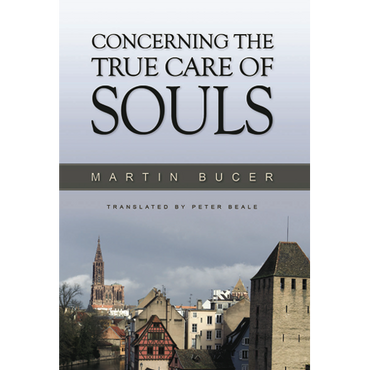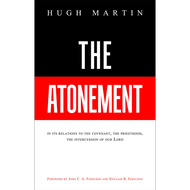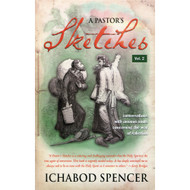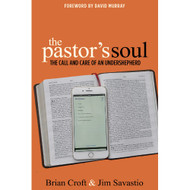Categories
Categories
Concerning the True Care of Souls by Martin Bucer (Hardcover)
Product Description
About the Author
Publisher's Description
We want to demonstrate to all the pious children of God, who from their hearts pray for the future of the kingdom of Christ, our own duty in this so deplorable scattering of the church.
The fact that all people have been made by God and are God’s creatures should therefore be reason enough for us to go to them, seeking with the utmost faithfulness to bring them to eternal life.
This is why we have undertaken the writing of this little book concerning all these matters, inserting various quotations from the word of God and, insofar as the Lord has given us grace, explaining them. From these every Christian can thoroughly learn what sort of fellowship the church of Christ is, how Christ the Lord alone rules, what ministry he requires in that rule and how this ministry is to be ordered and performed, in relation to all those who are brought to the church of Christ and wish to be kept and built up in it.
We have throughout set out the spiritual quotations, so that the Christian reader can himself see the foundation of the word, consider it and lay it up in his heart. For there are not a few who, as soon as anything is said about church discipline and order, are always crying out that we want to bring back the traditions and bondage of men; and so we do not wish to put forward anything other than the obvious and certain teaching and clear undoubted command of our Lord Jesus Christ.
Endorsement
Martin Bucer (1491-1551) was one of the leading lights of the Reformation even though he is now lesser known in general. Bucer is the one who invited Calvin to Strasbourg after his expulsion from Geneva and had a significant influence on Calvin. Many of Bucer's works have never been translated into English, and we are greatly indebted to Peter Beale for recently translating this important work on pastoral ministry.
In this "little book," as Bucer described it, Bucer expounds the nature and function of pastoral ministry. In doing so he discusses the nature of the church, church government, and church discipline. But all of this comes under the basic topic of what are pastors supposed to be and do.
The first portion of this book deals with the duties and qualifications for pastoral ministry and is pure gold! I was amazed at how relevant and timely so much of this section was. Bucer argues strongly for a plurality of pastors from a wide range of backgrounds so that the people can be cared for adequately. He also discusses at some length the variety of gifting's we ought to expect among pastors serving together in the same church. All must be able to teach, but they may express that gifting in a variety of ways from more one-on-one settings to public proclamation.
Because caring for, protecting and restoring the flock is a central aspect of pastoral ministry Bucer discusses discipline and penance. The surprise to me was the amount of space given to (and the conclusions on) penance. Bucer acknowledges abuses of penance and how it degenerated into mere external works to "pay off" sins. However, he argues that proper use of penance must be maintained. That is he argues that for serious sins, truly repentant people must not be immediately restored (particularly restored to the Lord's Supper) but must be excluded for a time and even given some ways of humbling themselves in order to help them take more seriously their sins. This was the most challenging portion of the book for me because elsewhere he was supporting my convictions and here he was contradicting them. It seems Bucer expected resistance or possible misunderstanding here because he devoted almost one fourth of the book to the one chapter dealing with this topic.
Bucer makes a careful exegetical case for this penance and we ought to consider carefully such a leading voice from the past. However, in the end I was not convinced. His exegetical arguments were not convincing (a key piece in his argument is identifying the sinning brother in 1 Cor 5 with the one to be restored in 2 Cor 1:5-7). I agree that pastors must wisely work with believers in their struggle with sin and understand that the effects of sin and lingering temptation do not disappear with repentance. However, imposing punishments and withholding the Supper until later seems to encourage what I need so much to fight against- "now, if I will do good for the next few days, then I will know that I have been forgiven." Bucer works hard to avoid this, but I was not convinced.
The last portion of the book continues with the authority of pastors and their task of caring for the souls of their people.
This is a brilliant book stressing the pastors' role in caring for souls. Interestingly, the book is strong in calling for evangelism. Though many today still equate Reformed theology with lack of evangelistic and missionary zeal, in this book you find the mentor of John Calvin giving strong rebuke to pastors who fail to evangelize. In fact he rebukes the Western church for failing to engage the Jews and Turks with effective missionary endeavors! Those would have been challenging mission fields at that time. There is much in this book that is very helpful as we consider how the plurality of pastors work and how church discipline works. Since these two practices have had to be recovered in many churches today, this book provides helpful, practical insight for putting these biblical truths back into practice.
I heartily commend this book to you. Beale has produced a very readable translation making it a joy to read.
 Loading... Please wait...
Loading... Please wait... 









